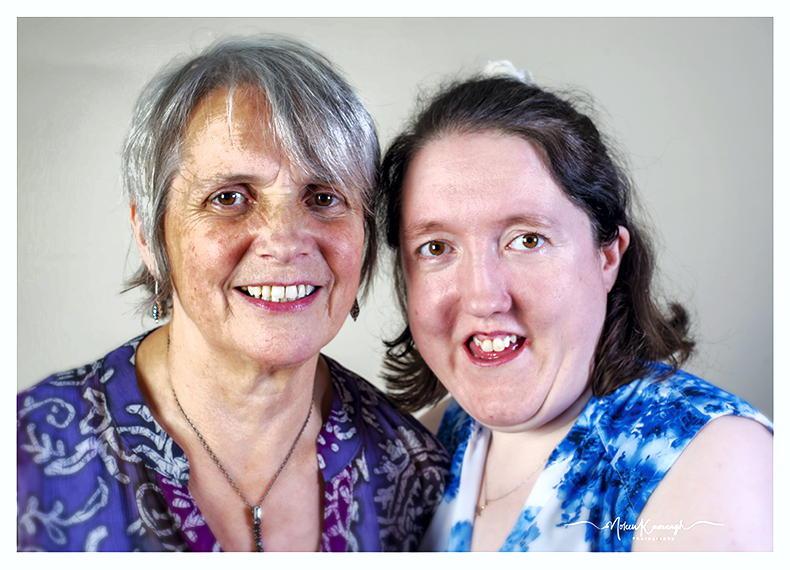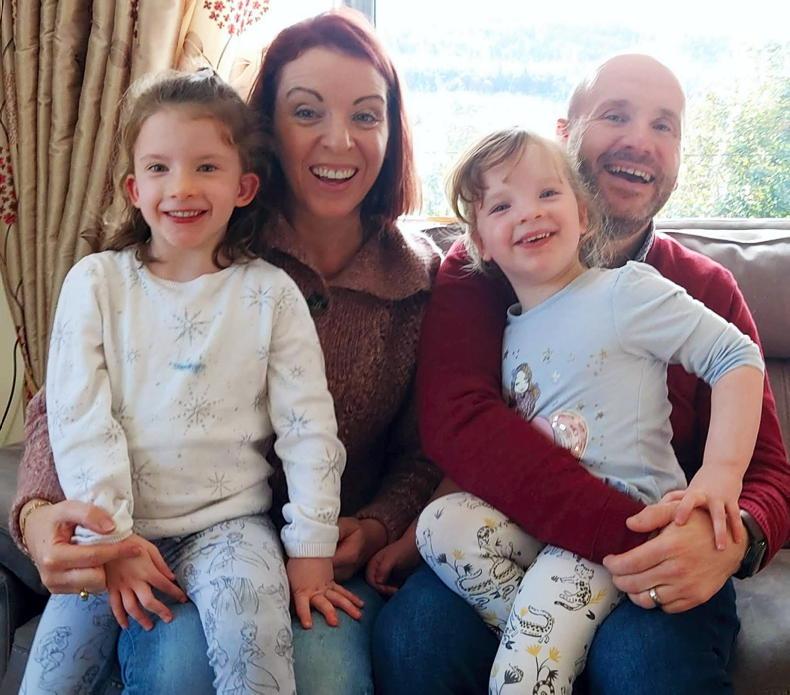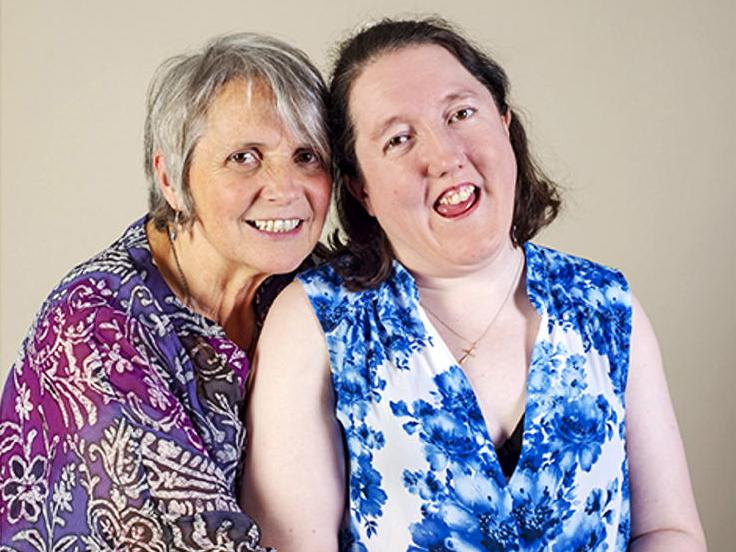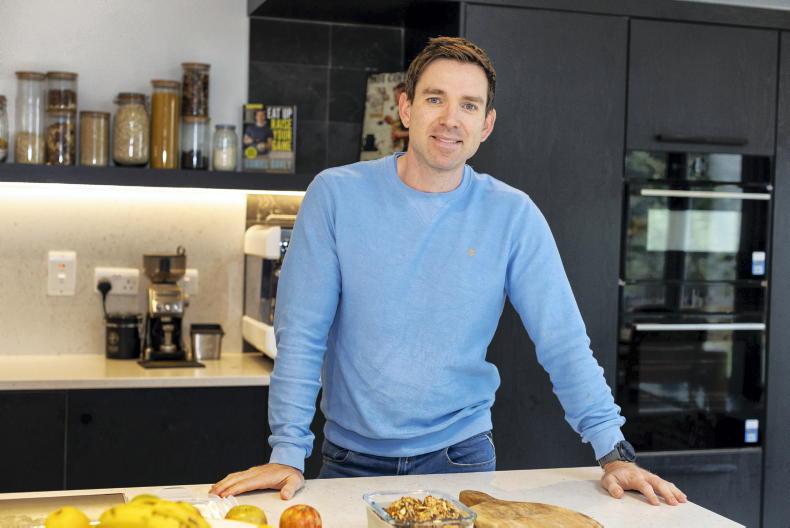Ever heard of 22q11 Deletion Syndrome? It’s the most common chromosomal disorder after Down Syndrome, but diagnosis has only been possible since the late 1990s due to the development of genetic testing. This rare condition is known to affect almost 200 families in Ireland.
Genetic disorders used to be called after the person who discovered them. Now, with high-tech genetic testing, the names of conditions are technical, too. With 22q11 Deletion Syndrome, think “postcode”. 22q11 is related to the long arm of the 22nd chromosome in human beings. It is like a postcode that, in this case, tells doctors that 40 or so genes are missing from this particular chromosome.
22q11 is a multi-system disorder with 180 potential symptoms and is often referred to as the “most common rare disease you’ve never heard of”.

While everyone who has it is very much an individual, the most common symptoms include structural heart defects, severe immune deficiency and learning disabilities, mild behavioural problems and speech and language issues.
“Many children with mild effects or symptoms go undiagnosed,” says Anne Lawlor, whose daughter Áine (now 38) was only diagnosed with the syndrome at the age of 15, when the new genetic test became available.
“Raising awareness of the condition will lead to children (and parents) getting the help they need,” she adds.
Dedicated clinic in Crumlin
The good news is that there is now a dedicated 22q11 clinic in Crumlin Children’s Hospital, and even more recently (and long sought), a care coordinator was funded by the HSE to work between Crumlin Hospital and St James’s.
“I’m still pinching myself,” says Anne. “This person will coordinate the care of those with the condition who are under 18. Those over 18 (and parents) will be able to tap into services locally, as well as travelling to Dublin for them.”
Long battle for services
It’s been a long battle for Anne. Her daughter, Áine, was slow to walk and talk and had many health and learning problems as she grew, but it wasn’t until 1998 that she was given the 22q11 diagnosis.
“I had never heard of it, and Google was only starting, so I travelled to international conferences, bringing her with me, to learn more about the condition,” she explains.
“After meeting some other Irish parents, we set up the support charity 22q11 Ireland in 2007.”
The group went on to organise annual conferences; inviting international researchers to speak.
“There were 50 families at the first one,” Anne says. “We were amazed! Twenty babies a year are born with the condition, so numbers are obviously growing now that the tests are there.”
UCD AgSoc students raise €50,000
Getting no funding from the HSE, it was a case of fundraising themselves, she says, and the charity is very grateful to UCD AgSoc students, who raised €50,000 in 2018.
“It enabled us to pay a researcher to help make our evidence-based case to the HSE for support. We’ll always be grateful for that. I think farmers understand genetics more than many sectors do.”
Integrated care needed
Anne, who is referred to as “the road warrior” because of her determination and tenacity in knocking on HSE doors, knows what people with 22q11 require.
“Supervisory care is needed all through their life,” she explains. “It is an extraordinarily complex condition because it is so variable and it can often take ages to get a diagnosis.
“We see psychological supports as being very important too for those who have the syndrome as well as siblings, parents and grandparents, but the government hasn’t taken that seriously yet.”
Anne’s vision is for integrated care for those with 22q11.
“We want a multidisciplinary approach over the person’s lifespan.”
Not as rare as you think
Anne points out that rare conditions are not as rare as one would think.
“There are 7,000 rare conditions and some of the symptoms are really common,” she says.
“Autism can be prevalent in rare conditions like 22q11, for example. I would say to parents “‘start thinking genetics (as a possible) reason for your child’s symptoms.’ Be aware that this could be a syndrome rather than a child just not hitting developmental milestones. In our experience, only children with congenital heart defects get tested early, so there may be a lot of people out there with the condition who are undiagnosed”.
Áine Lawlor: young ambassador for 22q11 Ireland
Áine, Anne’s daughter, is a young ambassador for 22q11 Ireland. Áine tells ICL about her life: “I have a part-time job in a crèche for the past three years. I didn’t like mainstream school but I loved St Michael’s House. The teachers are amazing. I had to leave there at 18. I know a lot about 22q. It’s a missing piece of my chromosome. It’s a genetic disorder, not well-known in Ireland. Having 22q11 is not easy at the beginning, but it does get a bit easier later on as you get older. You start to realise what’s at stake and you start to research more about the syndrome. We attended conferences. I would recommend that people who have children or adults with it go and meet others with the syndrome. That’s my best advice.
“We have a youth group. I’m on that panel. We do research projects and are educating parents, kids and adults about 22q11.
“I am not afraid of public speaking; I love it and I’ve been at lots of conferences. My motto is ‘Never let your disabilities define who you are.’ If you have the right support system, everything will fall into place. We are different, not less.”

Padraig and Martina Diskin with their children, Aibhín (who is six years old and on the left) and Clodagh, who is three.
Padraig Healy and Martina Diskin’s eldest daughter, Aibhín, (now six) has 22q11. For the couple (from Aughrim in Co Wicklow), their daughter having this condition meant a lot of worry and hospital appointments; particularly in the first year. With Aibhín now in mainstream school (in Annacurra National School) and doing well, they are beginning to relax a little – but it hasn’t been easy, and they are glad of the support they have from 22q11 Ireland and Crumlin Hospital and St Catherine’s Services in Wicklow.
Aibhín didn’t feed well until she had an operation to fix the hole in her heart at five months of age. Now six, she has some learning difficulties as well as some bowel and hearing issues but is doing well.
Martina, who is an operations controller duty manager with Aer Lingus, and Padraig, who is a sheep farmer, say the flexibility around the farming day has helped them.
“It meant there was always one of us available to take Aibhín for her many medical appointments,” Padraig says.
They both want to speak positively of their experience – and their daughter.
“When it comes to 22q11 there is a huge spectrum and we don’t know where Aibhín is going to hit on that, but from our perspective we like to be positive. She is an amazing little person and makes everybody smile,” he adds.
Martina is delighted that Aibhín is doing well now.
“She flourished in Montessori and is flourishing in mainstream school now, so we are able to enjoy her a bit more. She is all chat, asking questions, enjoying life. It’s great.”
There were difficult times, of course, with the stress of their daughter not feeding properly still remembered.
“There was massive trepidation around ‘what if she doesn’t continue to eat?’ We were on edge for the first three years, at every turn. With Aibhínn being a first child, we were also not sure about what was normal (developmentally) and what wasn’t.”
One of the challenges the couple has found is trying to explain Aibhín’s condition to other people.
“She presents as a charming, chatty and outgoing child,” Martina says, “so it can be difficult for us as parents to explain to people that Aibhín has a slow processing time. We might have to rephrase a question to give her that bit of extra time, for example.
“She might think for 30 seconds and that feels like forever when you’re trying to get a child dressed or off to school, or someone has asked her a question. It can be interpreted as not listening or bad behaviour if the people around her aren’t clued in, so our challenge is, ‘how do we explain this to strangers?’ without ramming explanations down people’s throats. Yes, she has a chromosomal disorder but she is perfect, really.
“In Aibhín’s case, there are no frustration outbursts which makes parenting that bit simpler.”
Early intervention
The couple say that early intervention is key.
“We are so glad we had that. Anne Lawlor, who has done so much for 22q11 parents, didn’t have that support. We were delighted to help with fundraising via connections with UCD’s AgSoc*.”
They both say that the value of having a dedicated 22q11 clinic in Ireland can’t be overestimated.
“Being able to contact the clinic in Crumlin when necessary is worth its weight in gold to us.”
They, like Anne, stress the value of getting a diagnosis.
“A lot of kids don’t get diagnosed with 22q11 because their issues are diagnosed separately,” Martina says. “Some could have ear infections, constipation or may be struggling in school but when you put all those symptoms together, it could be 22q11.”
Padraig hopes that this article will help other parents.
“Even if one parent said, ‘God! Our child has four or five of those symptoms,’ and got a diagnosis it would be huge for a family to know that there are services there and where to access them.”
See 22q11ireland.org
Read more
Living with haemochromatosis
Caring for family with Prader Willi Syndrome
Ever heard of 22q11 Deletion Syndrome? It’s the most common chromosomal disorder after Down Syndrome, but diagnosis has only been possible since the late 1990s due to the development of genetic testing. This rare condition is known to affect almost 200 families in Ireland.
Genetic disorders used to be called after the person who discovered them. Now, with high-tech genetic testing, the names of conditions are technical, too. With 22q11 Deletion Syndrome, think “postcode”. 22q11 is related to the long arm of the 22nd chromosome in human beings. It is like a postcode that, in this case, tells doctors that 40 or so genes are missing from this particular chromosome.
22q11 is a multi-system disorder with 180 potential symptoms and is often referred to as the “most common rare disease you’ve never heard of”.

While everyone who has it is very much an individual, the most common symptoms include structural heart defects, severe immune deficiency and learning disabilities, mild behavioural problems and speech and language issues.
“Many children with mild effects or symptoms go undiagnosed,” says Anne Lawlor, whose daughter Áine (now 38) was only diagnosed with the syndrome at the age of 15, when the new genetic test became available.
“Raising awareness of the condition will lead to children (and parents) getting the help they need,” she adds.
Dedicated clinic in Crumlin
The good news is that there is now a dedicated 22q11 clinic in Crumlin Children’s Hospital, and even more recently (and long sought), a care coordinator was funded by the HSE to work between Crumlin Hospital and St James’s.
“I’m still pinching myself,” says Anne. “This person will coordinate the care of those with the condition who are under 18. Those over 18 (and parents) will be able to tap into services locally, as well as travelling to Dublin for them.”
Long battle for services
It’s been a long battle for Anne. Her daughter, Áine, was slow to walk and talk and had many health and learning problems as she grew, but it wasn’t until 1998 that she was given the 22q11 diagnosis.
“I had never heard of it, and Google was only starting, so I travelled to international conferences, bringing her with me, to learn more about the condition,” she explains.
“After meeting some other Irish parents, we set up the support charity 22q11 Ireland in 2007.”
The group went on to organise annual conferences; inviting international researchers to speak.
“There were 50 families at the first one,” Anne says. “We were amazed! Twenty babies a year are born with the condition, so numbers are obviously growing now that the tests are there.”
UCD AgSoc students raise €50,000
Getting no funding from the HSE, it was a case of fundraising themselves, she says, and the charity is very grateful to UCD AgSoc students, who raised €50,000 in 2018.
“It enabled us to pay a researcher to help make our evidence-based case to the HSE for support. We’ll always be grateful for that. I think farmers understand genetics more than many sectors do.”
Integrated care needed
Anne, who is referred to as “the road warrior” because of her determination and tenacity in knocking on HSE doors, knows what people with 22q11 require.
“Supervisory care is needed all through their life,” she explains. “It is an extraordinarily complex condition because it is so variable and it can often take ages to get a diagnosis.
“We see psychological supports as being very important too for those who have the syndrome as well as siblings, parents and grandparents, but the government hasn’t taken that seriously yet.”
Anne’s vision is for integrated care for those with 22q11.
“We want a multidisciplinary approach over the person’s lifespan.”
Not as rare as you think
Anne points out that rare conditions are not as rare as one would think.
“There are 7,000 rare conditions and some of the symptoms are really common,” she says.
“Autism can be prevalent in rare conditions like 22q11, for example. I would say to parents “‘start thinking genetics (as a possible) reason for your child’s symptoms.’ Be aware that this could be a syndrome rather than a child just not hitting developmental milestones. In our experience, only children with congenital heart defects get tested early, so there may be a lot of people out there with the condition who are undiagnosed”.
Áine Lawlor: young ambassador for 22q11 Ireland
Áine, Anne’s daughter, is a young ambassador for 22q11 Ireland. Áine tells ICL about her life: “I have a part-time job in a crèche for the past three years. I didn’t like mainstream school but I loved St Michael’s House. The teachers are amazing. I had to leave there at 18. I know a lot about 22q. It’s a missing piece of my chromosome. It’s a genetic disorder, not well-known in Ireland. Having 22q11 is not easy at the beginning, but it does get a bit easier later on as you get older. You start to realise what’s at stake and you start to research more about the syndrome. We attended conferences. I would recommend that people who have children or adults with it go and meet others with the syndrome. That’s my best advice.
“We have a youth group. I’m on that panel. We do research projects and are educating parents, kids and adults about 22q11.
“I am not afraid of public speaking; I love it and I’ve been at lots of conferences. My motto is ‘Never let your disabilities define who you are.’ If you have the right support system, everything will fall into place. We are different, not less.”

Padraig and Martina Diskin with their children, Aibhín (who is six years old and on the left) and Clodagh, who is three.
Padraig Healy and Martina Diskin’s eldest daughter, Aibhín, (now six) has 22q11. For the couple (from Aughrim in Co Wicklow), their daughter having this condition meant a lot of worry and hospital appointments; particularly in the first year. With Aibhín now in mainstream school (in Annacurra National School) and doing well, they are beginning to relax a little – but it hasn’t been easy, and they are glad of the support they have from 22q11 Ireland and Crumlin Hospital and St Catherine’s Services in Wicklow.
Aibhín didn’t feed well until she had an operation to fix the hole in her heart at five months of age. Now six, she has some learning difficulties as well as some bowel and hearing issues but is doing well.
Martina, who is an operations controller duty manager with Aer Lingus, and Padraig, who is a sheep farmer, say the flexibility around the farming day has helped them.
“It meant there was always one of us available to take Aibhín for her many medical appointments,” Padraig says.
They both want to speak positively of their experience – and their daughter.
“When it comes to 22q11 there is a huge spectrum and we don’t know where Aibhín is going to hit on that, but from our perspective we like to be positive. She is an amazing little person and makes everybody smile,” he adds.
Martina is delighted that Aibhín is doing well now.
“She flourished in Montessori and is flourishing in mainstream school now, so we are able to enjoy her a bit more. She is all chat, asking questions, enjoying life. It’s great.”
There were difficult times, of course, with the stress of their daughter not feeding properly still remembered.
“There was massive trepidation around ‘what if she doesn’t continue to eat?’ We were on edge for the first three years, at every turn. With Aibhínn being a first child, we were also not sure about what was normal (developmentally) and what wasn’t.”
One of the challenges the couple has found is trying to explain Aibhín’s condition to other people.
“She presents as a charming, chatty and outgoing child,” Martina says, “so it can be difficult for us as parents to explain to people that Aibhín has a slow processing time. We might have to rephrase a question to give her that bit of extra time, for example.
“She might think for 30 seconds and that feels like forever when you’re trying to get a child dressed or off to school, or someone has asked her a question. It can be interpreted as not listening or bad behaviour if the people around her aren’t clued in, so our challenge is, ‘how do we explain this to strangers?’ without ramming explanations down people’s throats. Yes, she has a chromosomal disorder but she is perfect, really.
“In Aibhín’s case, there are no frustration outbursts which makes parenting that bit simpler.”
Early intervention
The couple say that early intervention is key.
“We are so glad we had that. Anne Lawlor, who has done so much for 22q11 parents, didn’t have that support. We were delighted to help with fundraising via connections with UCD’s AgSoc*.”
They both say that the value of having a dedicated 22q11 clinic in Ireland can’t be overestimated.
“Being able to contact the clinic in Crumlin when necessary is worth its weight in gold to us.”
They, like Anne, stress the value of getting a diagnosis.
“A lot of kids don’t get diagnosed with 22q11 because their issues are diagnosed separately,” Martina says. “Some could have ear infections, constipation or may be struggling in school but when you put all those symptoms together, it could be 22q11.”
Padraig hopes that this article will help other parents.
“Even if one parent said, ‘God! Our child has four or five of those symptoms,’ and got a diagnosis it would be huge for a family to know that there are services there and where to access them.”
See 22q11ireland.org
Read more
Living with haemochromatosis
Caring for family with Prader Willi Syndrome











SHARING OPTIONS